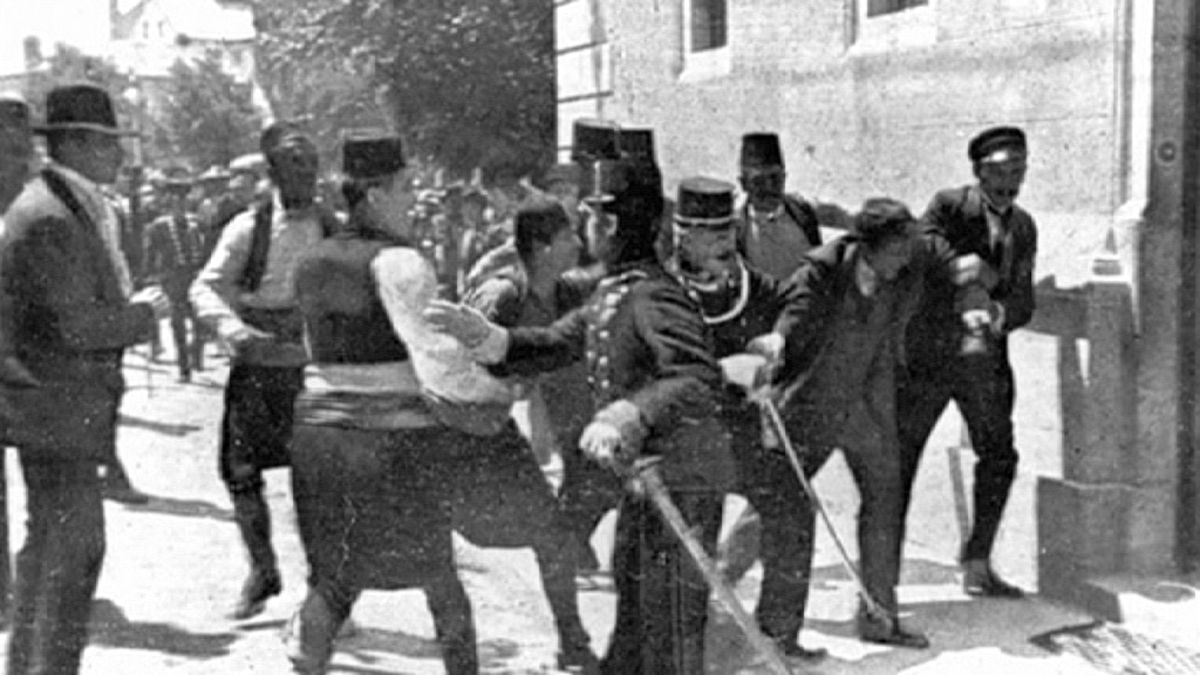The shots that rang out in Sarajevo on 28 June 1914 echoed around Europe, while their impact ultimately sparked World War I. It was the assassination of Archduke Franz Ferdinand and his wife Sophie, gunned down by Bosnian Serb nationalist Gavrilo Princip.
The spark flew from Sarajevo via Trieste to the heart of the Austro-Hungarian Empire of which the Archduke was crown prince.
It was the Belle Epoque of the Hasbsbourg dynasty and Trieste was the second most important city in their realm. But the Golden Age was coming to an end, its demise evoked by the German poet Rainer Maria Rilke in elegies he penned while a guest of the Habsbourgs at Chateau Duino near Trieste.
With Italy’s entry into the war the castle at Duino was enmeshed in a network of trenches. The horrors of trench warfare came to symbolise the absurdity of the conflict. In the world’s most advanced continent soldiers lived in cruelly primitive conditions, sometimes just 30 or 40 metres from each other, in battle lines that barely moved for months on end.
Italian writer and journalist Paulo Rumiz has just completed a tour of the War’s main fronts. It marked him deeply. He believes a united Europe could have emerged from the Great War and that Second World War could have been avoided: “This journey through the Great War made me ultra-European. But if I became more-pro European, on the one hand, I also became much more concerned about the fate of Europe with what is happening in Ukraine where there’s a revolution and that revolution is the daughter of instability born in 1914.
“After nearly 70 years of peace I feel this peace is relative, in the sense that today we don’t deploy armies any more but capital. We live in a situation of wealth and in a culture in which some whole populations are impoverished for the benefit of others.
“It’s not possible that the memory of 1914 is composed of the silence of the Germans, French fanfare, nostalgia and drums… and British nostalgia for its lost empire, and of the rhetoric of Italians. To me, it is useless. I need to see a great vision of humble honesty in which we say: “Dear Europe, see how we are reduced to the inability to predict, the inability to raise the alarm.”
In 1914 the San Marco cafe in Trieste was a meeting place for young Italian patriots. Here they worked on created fake IDs to avoid conscription into the Austrian army.
Today those times are being commemorated by a project called “Communicating the Great War to Young People, involving students from around Europe. Set up by the Future Roots foundation, it is led by journalist Laura Capuzzo
““Before the First World War, Trieste was known for coexistence, acceptance of others and respect for different cultures, we would like to recover these kinds of memories as part of the collective memory of what was the first World War,” she says.
Along the Julian Alps in modern day Slovenia the Italian, Austria and German trenches provide are a window onto the past. The harsh realities of what happened in this rugged terrain over two and a half years are kept alive in the Kobarid Museum.
The curator, Željko Cimprič, says the museum commemorates all those who died: “We decided that our approach telling this stories was not to divide the people that was fighting in this field on bad and or good guys.
“So we treat all the nationalities equally, for us the story was important not to make definitions (like) this was a good guy or that was the bad guy”.
“These places we are speaking mostly in this museum is the mountain welfare and it tells you that the nature was many times bigger enemy that the enemy itself and the morphology of the terrain is quite specific not to be compared with the western front or the front in Russia.
“It means the nature here is much harder and the man that is deployed with his unit in such places, will have quite different experience than somebody else. Here mountains is a crucial world”.
Today all is tranquil here, but the memories of these mountains’ troubled past lives on.


